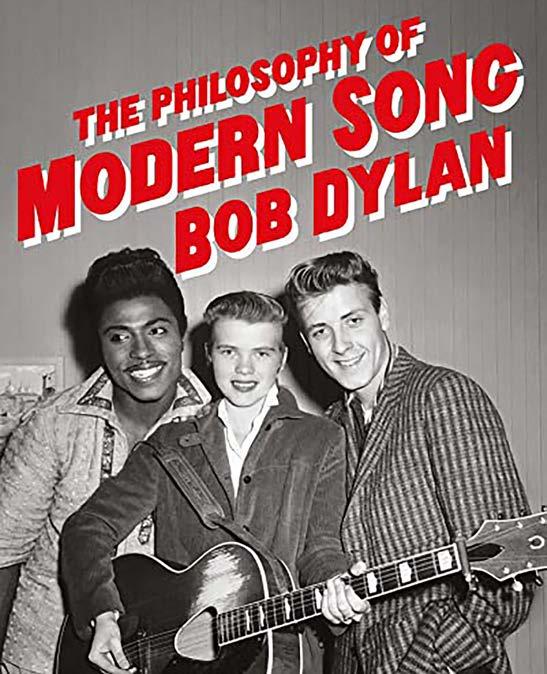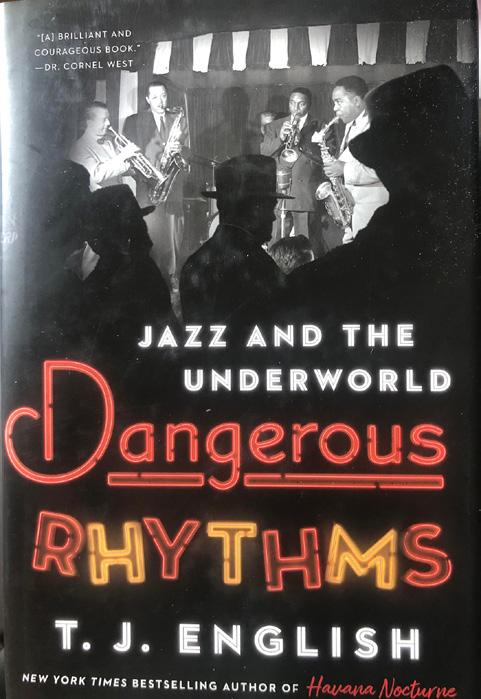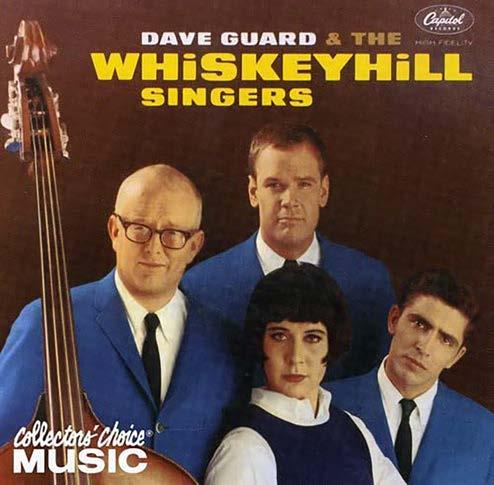
7 minute read
DESERT STORM
Malian guitarist and singer-songwriter Vieux Farka Touré has definitely moved out of the shadow of his legendary ‘father of African desert blues’, the late Ali Farka
Touré. His new album ALI was made
Advertisement
in collaboration with Texas-based trio
Khruangbin. By Chris Lambie
To follow in the footsteps of a famous parent can be challenging. Some will always be known as ‘son of…’ or ‘daughter of…’. The exceptional few go on to side-step comparisons. Like Nora Jones, Jeff Buckley, Liza Minnelli, Femi and Seun Kuti. Their iconic parents eventually became less of their own professional story. Malian guitarist and singer-songwriter Vieux Farka Touré has particularly large shoes to fill as the son of legendary ‘father of African desert blues’, the late Ali Farka Touré. Ali was a pioneer introducing West African music to the world stage. He wanted Vieux to be a soldier, in accordance with the family lineage expectation. But the calling towards a musical path was strong. Vieux was initially a drummer and calabash player at Mali’s Institut National des Arts, before taking up the guitar. Now a star in his own right, Vieux records and performs in his own acclaimed style – both spectacular and sublime. Vieux has released two albums this year that honour the legacy of his father in different ways. ALI features covers of eight of his father’s songs. With a new interpretation to the tracks, the inspiration is undeniable but the sound is fresh. “Yeah, for sure,” he agrees. “I took the influence from my father but I have my own side, my own music. Because when you’re the son of somebody, you have to do your own stuff. To do something good, you have to bring something new. It’s what I’m trying to do.” ALI was made in collaboration with Texas-based trio Khruangbin, blending Vieux’s exquisite guitar and soulful voice with their dub-funk psychedelia. They recorded the album in June 2019, the songs selected by Ali’s 11 children. He enjoyed working with the trio. “It’s something we do very friendly, you know. We just go in the morning, sit down, speak first, say ‘OK’ and try to do something. It’s like if you’re with your friends. Very, very comfortable.” Homebound in 2020, Vieux worked in his studio (‘Studio Ali Farka Touré ‘) to record his debut album for World Circuit Records/BMG (UK) who recorded and released most of Ali’s work. The album, Les Racines is his sixth solo release. It sees Vieux revisit the deep Songhai ‘desert blues’ roots that his father is known for. Malian musicians Amadou Bagayoko (Amadou & Mariam), Mamadou Sidiki Diabaté (kora) and Madou Traore (flute) feature on the album. It’s been said that every culture has its own ‘Blues’. Same-same but different. Vieux says,” Everybody has his own music to play. How he understands the music is very important. To compare the music and the artists is very difficult. People from Niafunké, play the music of Niafunké. There’s the blues of Kidal, the Ivory Coast... They have their own flavour. It’s like if you take peanut butter sauce. If you eat it in Australia or Mali or Senegal, it’s the same but with its own flavour.” It’s at this point in our conversation that technology between continents lets us down. “The network is not good here,” Vieux sighs between disconnections. “It’s a big problem.” As can be daily life in Mali where political tensions continue to cause unrest, displacement and civilian lives lost. Les Racines track ‘Ngala Kaourene’ implores ‘We must make peace.’ Often targeted, many artists have been forced to leave their homes to settle in Europe or elsewhere. Vieux has remained in Bamako
28
with his large family. “It is what it is,” he says sadly. “It’s not that good but we don’t have a choice. We have to live like this. I’m staying in Mali with my family because I have to take care of everybody. We always hope it’s going to be better soon…” So, with various ‘app’ links failing, bass player Marshall Henry (go-between on the line) suggests I send further questions in print. Here they are: Q: Les Racines has wonderful rhythms, percussion, clapping etc. Starting as a player of drums and calabash must have had an impact on your songwriting and guitar style? A: Yes, my background as a percussionist gives me a strong rhythmic foundation to my guitar playing. It also helps me write the drumbeats and percussion parts for my songs. When I write a song, I usually come up with all the other parts in my head and then teach them to my band. Q: What did you find most valuable in attending the Institut National des Arts in Bamako? A: It was great to be exposed to top level musicians and I really enjoyed my time there. I had some professors that had studied in Cuba, so I actually learned a lot about Cuban music. There is a lot of connections between Malian and Cuban music. It’s something I’m interested in exploring more in my own music. Q: You have worked in other collaborations before ‘Ali’. (Including Israeli singer-songwriter Idan Raichel and Malian kora master Toumani Diabaté.) Tell us about some of your most memorable times on stage with others? A: My favourite way to work is spontaneously and just by letting the music happen. For this to work, you need to really immerse yourself in
the music and be an active participant. Some of my favourite moments on stage are when I get to perform with friends that I haven’t seen in a while. I had a great time performing with reggae legend Clinton Fearon in Seattle a few years ago. Last time I toured in Australia the great guitarist Jeff Lang joined me on stage for a song. Q: What guitars did you use on the latest recordings? A: I have been playing Godin guitars since the beginning of my career. They are my favourite guitar. I love Godin! On Les Racines I played my new Godin LGX-SA on most of the songs. I also played my father’s Seiwa Powersonic. It’s the guitar pictured on many of his album covers and is his most iconic guitar. It’s a very special guitar and I always feel a connection to my father when I play it. On my album Ali I played the guitar Godin gave me on my first North American tour. It’s also a Godin LGX-SA and it has been around the world many times with me. Q: You speak many languages (Eight, I believe). Music being the international language, where have you been on tour that the reception to your music really surprised you? A: That’s a good question. I played in Slovakia earlier this year. It was in a really old historic church And, at first, I thought I should just play acoustic guitar and calabash. So, I started the set with more mellow acoustic songs and the audience was sitting listening. Then I decided to give the electric songs a try. By the end of the night everyone was dancing, and it was like a big party. Q: How have you seen the rise in acceptance of ‘World Music’ among mainstream audiences. Your father was there at the outset and now the music of countries like Mali are recognised and feature at a range of festivals. A: Yes, it’s great that Malian music is being recognised more and more. A lot of people only know about Mali because of our music. For a country with a smaller population, we have a lot of amazing musicians. There is still more work to do though to spread Malian music. Q: The political troubles have threatened to silence the traditional culture of Mali. Tell us about your charity work to address this. A: I’m very proud to have founded a charity called Amahrec Sahel. It has been supporting different schools in Mali and an orphanage in Bamako. I recently was able to give hundreds of notebooks to school children in Northern Mali. I also try to bring back quality instruments from abroad and give them to young musicians in Mali. It’s really rewarding work to be a part of! I’m also President of the Ali Farka Touré Foundation. It’s an organization dedicated to preserving my father’s legacy and supporting Malian music. We put on a festival every year in March. This year I’ll be livestreaming it, so stay tuned! Q: Have you been watching the World Cup? You performed at the 2010 series. Who will win? A: Yes, I have always been a fan of the World Cup, but I have felt a special connection to it after performing at the 2010 Opening Ceremony. I’m rooting for Senegal.











